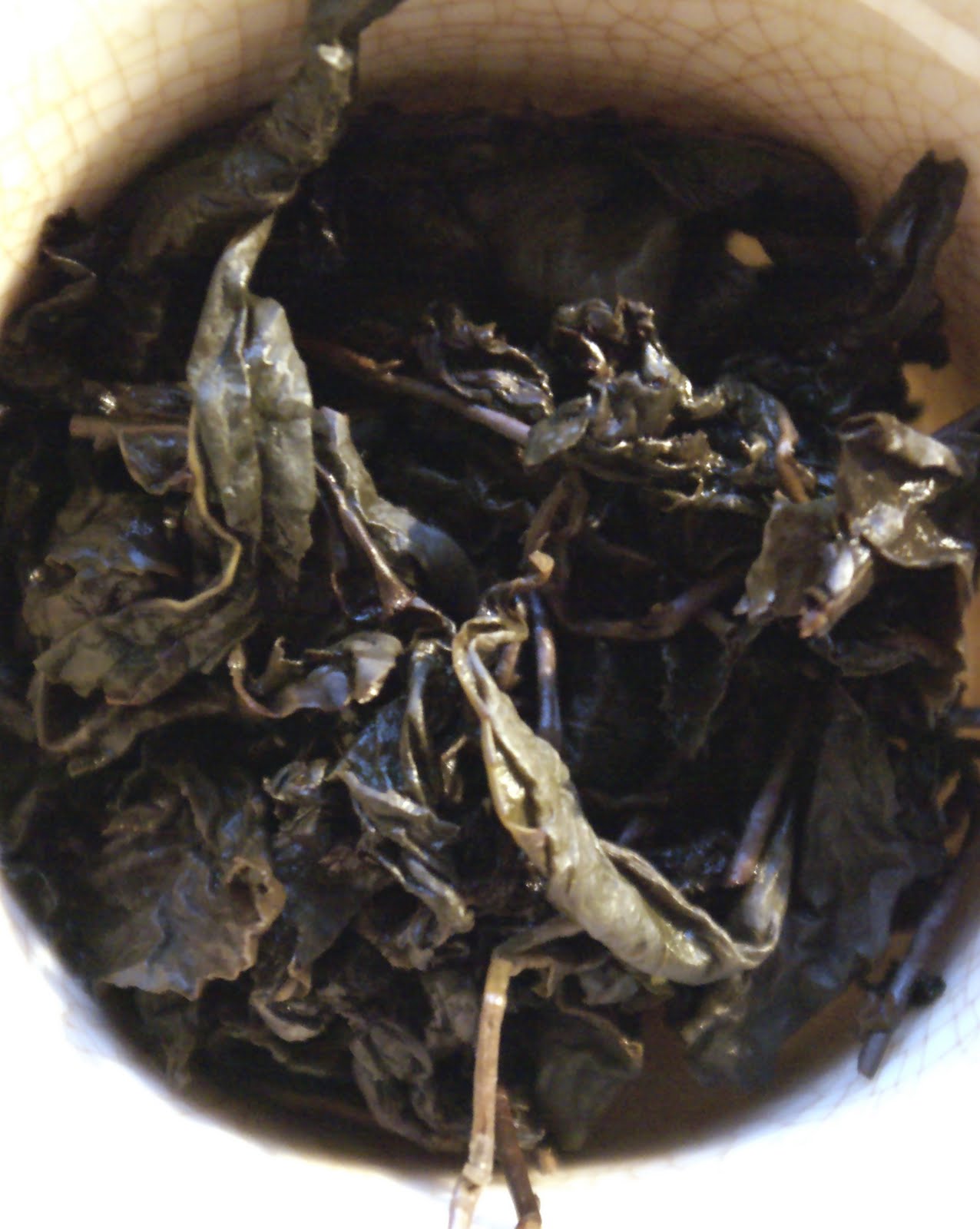2007 Heavy-Roasted Winter Shanlinshi
Posted on 18 October 2009
No Indian summer for Poland this year. Last Wednesday we’ve had the first snowfall of this season, and temperatures continue around the 5C mark. It’s grey, dull and chilly and my thoughts naturally drift towards comfortable, heart-warming, unadventurous tastes.
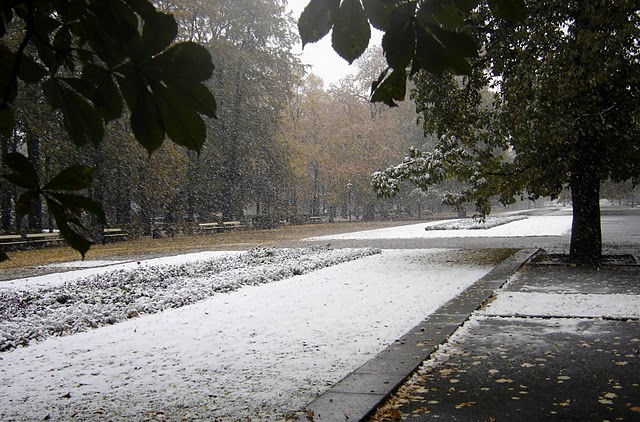
Photo taken Wednesday last at the Saxon Park in Warsaw.
It’s the sort of season that gradually taught me to appreciate roasted oolong teas. I’m an aromatic sort of guy and at the beginning of my road to tea, I appreciated teas for their bouquet more than anything else. At that time, fresh unroasted Tieguanyin, Taiwanese gaoshan and especially Baozhong were favourites. Those aren’t particularly well-structured teas but I was fully satisfied by that intensely flower-scented first cup.
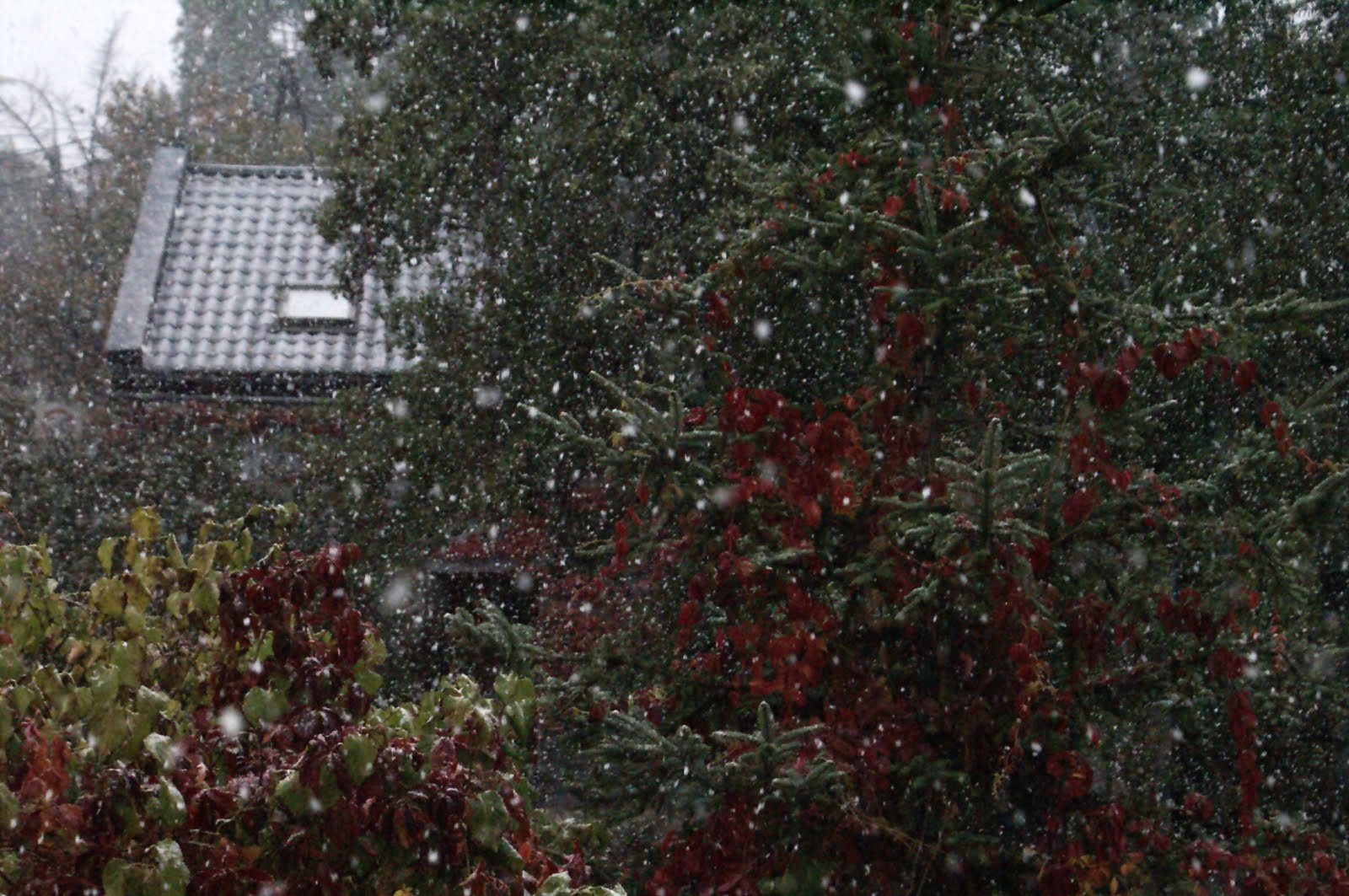
Feeling like a nicely chilled Vinho Verde?
I remember my first couple of orders with Taiwanese specialist Tea Masters and adding, out of curiosity, some of the numerous references of the medium-roasted rolled oolongs that Stéphane stocks. I couldn’t warm up to them. I used to think the added body and patience were not worth sacrificing the heavy bouquet.
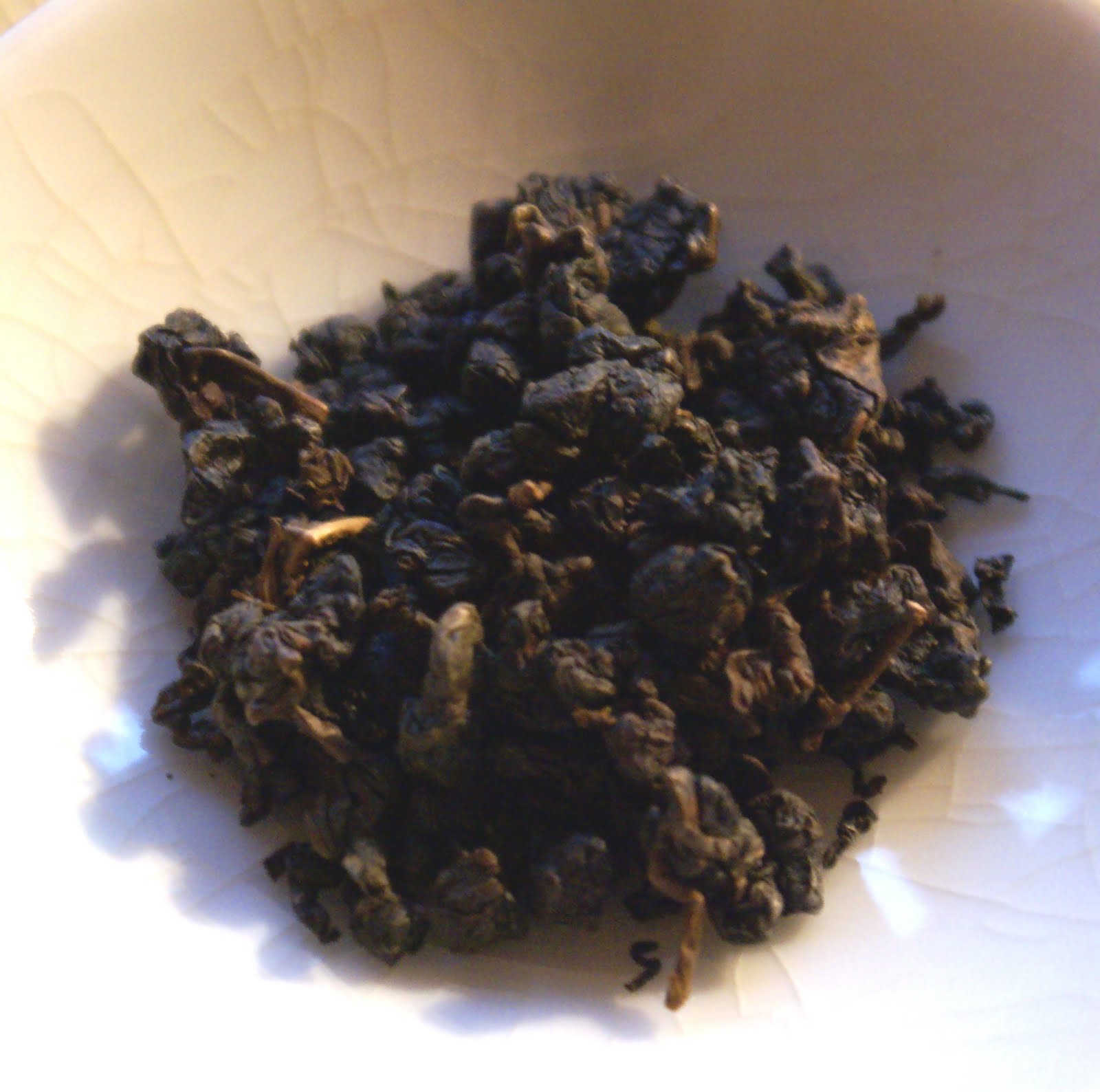
Today I am coming back to these teas with real delight. One such comfort tea that never disappoints is the
2007 Heavy-Roasted Winter Shanlinshi (30€ / 100g). It’s one of a dozen or so
selections of rolled mountain oolongs from the
Luanze (a.k.a.
Qingxin) varietal of tea tree available from Tea Masters. Coming from a winter harvest with lower aromatics but deeper, more consistent mouthfeel, it’s another masterpiece of balanced roast (see
this review for another example). It might lack the assertive floral notes of unroasted
gaoshan but surely sits very comfortably in the mouth, and is all about elegance and balance. The smooth buttery texture is underpinned by gentle notes of toasted grain. Although Tea Masters by comparison to other ‘cuvées’ call this a heavy roast, it is never as present as in a Wuyi ‘cliff tea’ from Fujian in China; I’d call it MT+ as is the habit for oak barrels for wine.
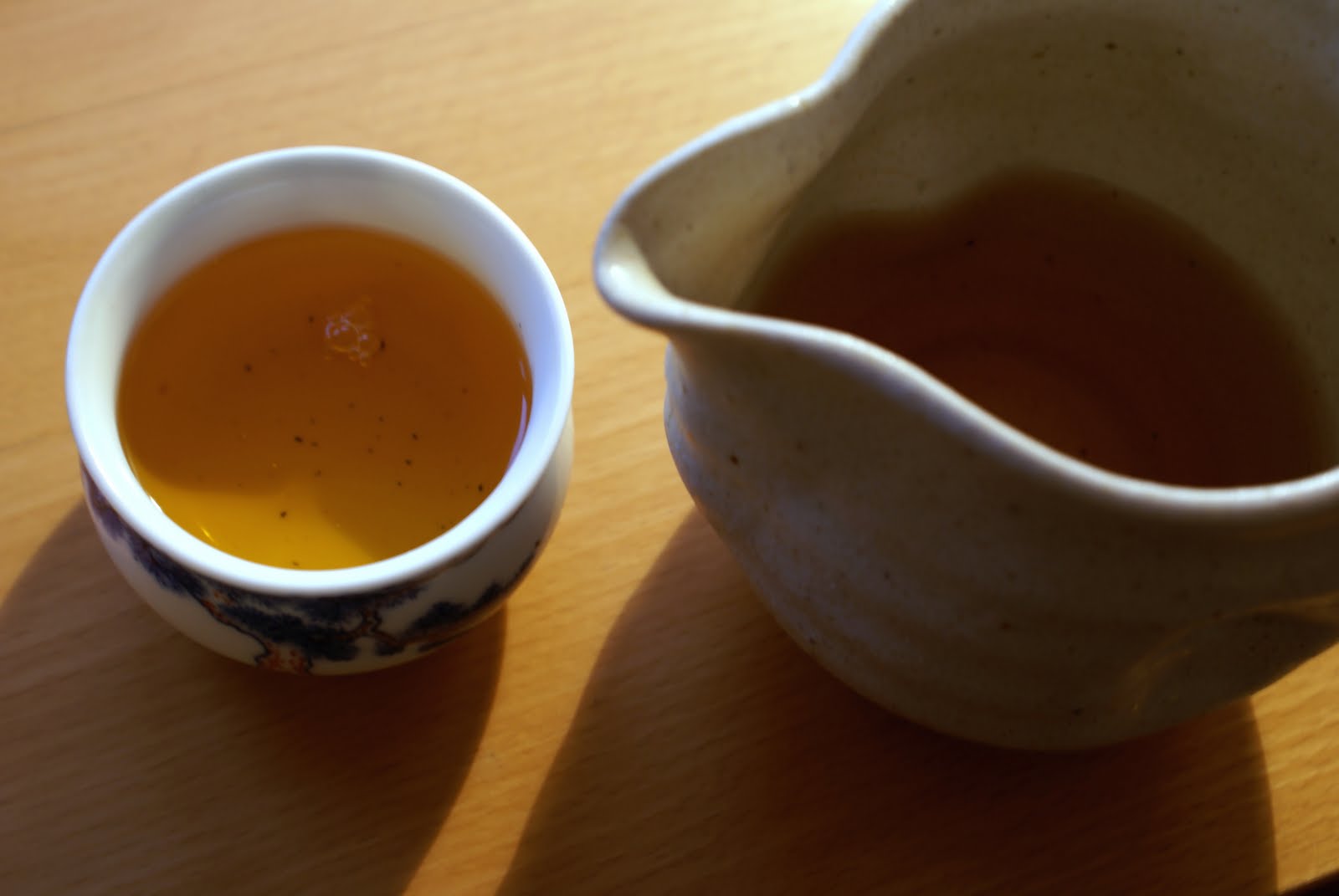
Infusion no. 3 (15 seconds) in gaiwan.
One remarkable thing about this tea (and this tea family in general) is its endurance. It seems to brew endlessly. I usually grow bored of a single tea after 6–7 infusions but yesterday went up to a good 15 cups without any visible decrease in quality and intensity. Dosage is not so important (even 2.5–3g per 100 ml of water works fine) but it is crucial to keep the initial steeps short. I never rinse, and keep the first infusion long enough for the leaves to half-open, while the subsequent steeps are 10–15s. The patience of this tea is amazing, as is its stability of colour: even after 15 infusions it’s the same orange-amber, and the leaves do not open completely (a sign of highish roast) but remain healthy and green (a sign of well-balanced roast) and could seemingly march on forever. It’s good to know there’s someone with you who never gives up.






